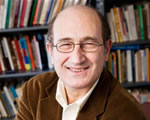 Mahir Şaul spans in his research two world areas, Africa and the Middle East; thematically he carried out work on household organization, economic and political history, the transnational movement of people and ideas, and language and visual arts in their social context. His current project concerns south-south migration, based on a year of fieldwork among West and Central African immigrants in Istanbul. At the same time he publishes on African cinema and on his earlier research in West Africa. He carried out most of his fieldwork in Burkina Faso, with three separately funded extended periods of residence, and a large number of shorter study visits. Questions about intra-household relations, agricultural work schedules, and gender roles informed these research episodes. During his second stay in 1983 he began his long-term engagement with Bobo-speaking villages, continuing his earlier focus on farm organization, but extending it now to community ritual calendar and masquerades. His approach gradually took a more pronounced historical turn. He spent time in the colonial archives in France, Côte d’Ivoire, Burkina Faso, and the archives of the White Father missionaries in Rome. He published an anthropological history of a violent African resistance movement in the early colonial period, and essays on the polycephalous political order of the late nineteenth century Volta region, economic history, older moneys and transition to colonial currency. He participated in a large multi-country project on environmental history, collaborating for the purpose with Burkinabe colleagues. He followed work on rural, urban, and cross-border trade with surveys on the same topic in Mali, Senegal, Benin, Togo, and Ghana. His current sub-Saharan immigrants research builds on this background; it foregrounds trade connections, self-employment, and aspirations for self-betterment as against prevailing themes in the literature, such as helplessness, precarious existence, and transitory movements. The second world area where Şaul conducts research is Turkey in its Middle Eastern and European settings. He wrote on Judeo-Spanish sociolinguistics, has an abiding interest in Turkish oral literature and folklore, and gave lectures on Turkish nationalism and modernization process. He held teaching and research positions in various European institutions. On the heels of an African film festival in Urbana, Illinois, he curated in 2012 a high profile African film series for the Istanbul Museum of Modern Art in Turkey. He teaches on anthropological social theory and Marxism, economic anthropology, transnational migrations, Islam, African cinema, African ethnography, and Sephardic culture.
Mahir Şaul spans in his research two world areas, Africa and the Middle East; thematically he carried out work on household organization, economic and political history, the transnational movement of people and ideas, and language and visual arts in their social context. His current project concerns south-south migration, based on a year of fieldwork among West and Central African immigrants in Istanbul. At the same time he publishes on African cinema and on his earlier research in West Africa. He carried out most of his fieldwork in Burkina Faso, with three separately funded extended periods of residence, and a large number of shorter study visits. Questions about intra-household relations, agricultural work schedules, and gender roles informed these research episodes. During his second stay in 1983 he began his long-term engagement with Bobo-speaking villages, continuing his earlier focus on farm organization, but extending it now to community ritual calendar and masquerades. His approach gradually took a more pronounced historical turn. He spent time in the colonial archives in France, Côte d’Ivoire, Burkina Faso, and the archives of the White Father missionaries in Rome. He published an anthropological history of a violent African resistance movement in the early colonial period, and essays on the polycephalous political order of the late nineteenth century Volta region, economic history, older moneys and transition to colonial currency. He participated in a large multi-country project on environmental history, collaborating for the purpose with Burkinabe colleagues. He followed work on rural, urban, and cross-border trade with surveys on the same topic in Mali, Senegal, Benin, Togo, and Ghana. His current sub-Saharan immigrants research builds on this background; it foregrounds trade connections, self-employment, and aspirations for self-betterment as against prevailing themes in the literature, such as helplessness, precarious existence, and transitory movements. The second world area where Şaul conducts research is Turkey in its Middle Eastern and European settings. He wrote on Judeo-Spanish sociolinguistics, has an abiding interest in Turkish oral literature and folklore, and gave lectures on Turkish nationalism and modernization process. He held teaching and research positions in various European institutions. On the heels of an African film festival in Urbana, Illinois, he curated in 2012 a high profile African film series for the Istanbul Museum of Modern Art in Turkey. He teaches on anthropological social theory and Marxism, economic anthropology, transnational migrations, Islam, African cinema, African ethnography, and Sephardic culture.
